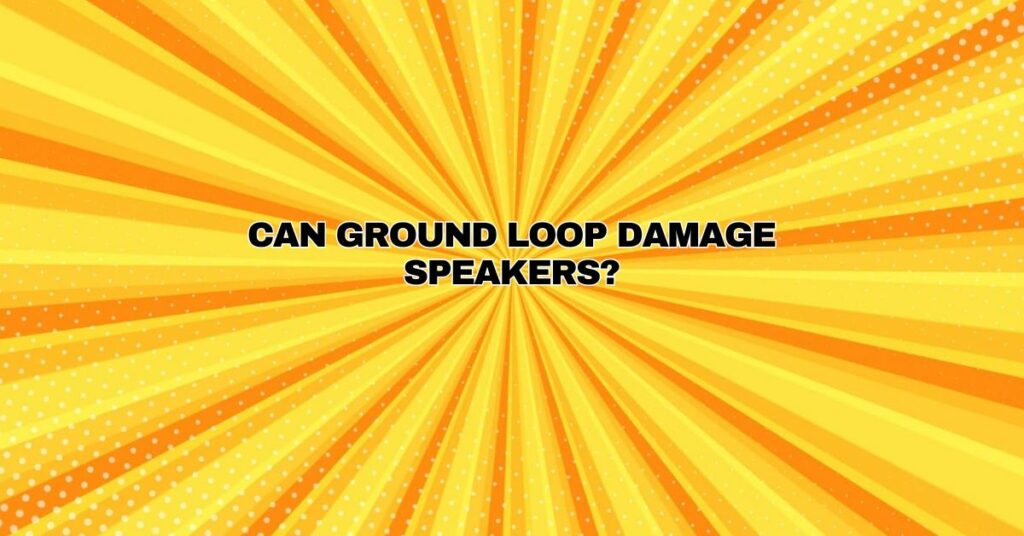Ground loops are a common issue in audio systems that can lead to unwanted hum, noise, and interference in speakers and audio playback. While ground loops are generally considered a nuisance rather than a direct threat to speaker damage, understanding their nature, causes, and consequences is crucial for maintaining a high-quality audio experience. In this comprehensive article, we will explore what ground loops are, the potential for ground loops to affect speakers, and how to prevent and address this issue.
Understanding Ground Loops
A ground loop occurs when there is more than one path to ground in an electrical circuit. In an audio system, ground loops can be created when various components, such as amplifiers, sources, and speakers, are connected to different power sources or grounded in various ways. When ground loops are present, they can lead to electrical interference, which manifests as an audible hum or noise in the speakers.
Potential Impact on Speakers
While ground loops themselves are not known for causing direct damage to speakers, they can have indirect consequences that affect the audio quality and the overall listening experience. Here are some of the potential impacts of ground loops on speakers:
1. Hum and Noise: Ground loops can introduce an audible hum or noise into the speakers, which is often disruptive and can diminish audio quality. This noise is generally not damaging to the speakers but can be annoying to listeners.
2. Reduced Audio Fidelity: Interference from ground loops can compromise the clarity and fidelity of audio. This may lead to a less enjoyable listening experience, but it is not typically related to physical damage to the speakers.
3. Overloading Amplifiers: In some cases, ground loops may lead to overloading of the amplifier in an attempt to counteract the hum or noise. While this doesn’t harm the speakers directly, it can cause strain on the amplifier.
4. Voice Coil Overheating: In extreme cases, speakers can be subjected to continuous electrical interference due to ground loops. While this is uncommon, prolonged exposure to interference can result in overheating of the voice coil, potentially leading to damage over time.
Preventing and Addressing Ground Loops
Preventing and addressing ground loops is essential for maintaining audio quality and ensuring that speakers perform at their best. Here are steps you can take to address ground loop issues:
1. Disconnect Unnecessary Components: Begin by disconnecting all unnecessary components from the audio system and gradually reconnect them one at a time. This can help you identify the specific component or cable that is contributing to the ground loop.
2. Use Ground Lift Adapters: Ground lift adapters or ground loop isolators can help break the loop by disconnecting the ground connection. However, they should be used cautiously and sparingly, as they can create safety hazards if misused.
3. Check Power Sources: Ensure that all components in your audio system are connected to the same power source or power strip. Using power conditioners can help stabilize the power supply and minimize the potential for ground loops.
4. Reconfigure Audio Connections: Experiment with different audio connections and cables to see if the ground loop can be eliminated. High-quality, shielded cables are less susceptible to interference.
5. Professional Assistance: If you are unable to resolve ground loop issues on your own, consider consulting a professional audio technician or specialist who can diagnose the problem and provide tailored solutions.
Conclusion
Ground loops are a common issue in audio systems that can lead to hum and interference in speakers and audio playback. While ground loops are generally not known for causing direct damage to speakers, they can affect audio quality, introduce noise, and strain amplifiers. Understanding the causes and consequences of ground loops is crucial for maintaining a high-quality audio experience. By taking steps to prevent and address ground loop issues, you can ensure that your speakers deliver clear and pristine sound, free from the disruptive effects of hum and interference.

